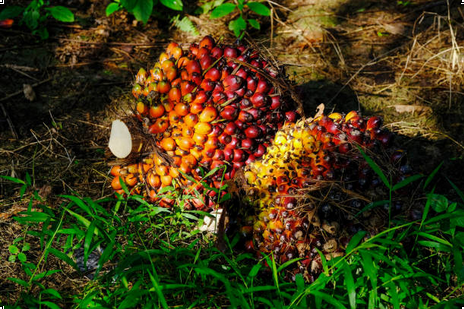The palm oil business in Nigeria has seen a spike in profit these past years, presenting a lucrative opportunity for entrepreneurs and investors looking to make their mark in the agricultural industry.
The industry has great chances for profit due to the high demand for palm oil locally and internationally. With Nigeria’s favorable climatic condition, starting a palm oil business in 2024 can make you a lot of money.
In this article, we’ll discuss the intricacies of starting a palm oil business in Nigeria, explore various means and opportunities in the palm oil industry and also how you can utilize these opportunities to increase your income in 2024.
Read Also: Risk In The Nigerian Palm Oil Business
Key Takeaways:
- Starting a palm oil business in Nigeria can be a lucrative venture due to the consistent high demand for palm oil as a cooking oil.
- Conduct thorough market research to understand the demand, pricing, and competition in your target location.
- Create a comprehensive business plan outlining your objectives, target market, competitive analysis, marketing strategies, and financial projections.
- Secure the necessary capital and set up a processing factory by obtaining licenses, permits, and investing in palm oil machines.
- Focus on building a sustainable business that not only generates profits but also uplifts local communities and contributes to the overall growth of the palm oil industry in Nigeria.
Steps to Start Your Palm Oil Business in Nigeria
The following steps would show you how to begin and succeed in the Nigerian palm oil trade.
1. Choose your niche: Plantation Owner, Mill Operator, or Trader?
The palm oil business is a vast one that requires specification to build a strong brand awareness and generate substantial income in the palm oil industry. Specialization in the sense that, one can decide to venture into the palm oil business either as a palm tree plantation owner, a distributor or a retailer.
Each sector or specialization requires a different approach for a complete business set-up. For example, a palm tree plantation owner would focus on acquiring suitable land, cultivating palm trees, and harvesting the fruit. Their brand awareness might target other businesses in the palm oil industry.
In contrast, a distributor would concentrate on building a network of suppliers and buyers, ensuring efficient transportation and storage of palm oil. Their brand might resonate with retailers or manufacturers, emphasizing their reliable supply and competitive pricing.
While a retailer selling directly to consumers would need to cultivate a brand that connects with their target audience. This could involve promoting ethical sourcing, specific uses of palm oil, or unique product blends.
While your choice of preference may be focused on investing in palm oil as either a distributor or a retailer, this guide covers all areas of the palm oil business.
2. Conduct Market Research
After you should have carefully chosen your area of interest or specification, it’s crucial to know the market well. This way, your decisions can lead to a successful business.
Start by figuring out what the market needs. Look into how much palm oil the area uses (an area is not limited to a specific community or city). Find out what makes people buy palm oil. This knowledge helps you see how big your market is.
Also, see what your competitors are doing. Find out what they’re good at and where they lack. Then, make your business different. This helps you offer something special.
Doing market research also uncovers who might buy your palm oil. Learn about the different groups interested in palm oil. Know what they like, what they’re willing to pay, and how they shop.
3. Create a Comprehensive Business Plan
Starting a palm oil business in Nigeria requires a detailed plan. This plan should cover your goals, the market you’re targeting, what your competition is like, how you’ll promote your products, and what your financial expectations are.
Your business plan acts as a guide for your business. It outlines the path you need to take. With a solid plan, you can make smart choices for your palm oil venture.
Begin by stating what you want to achieve. Do you want to produce a certain amount of palm oil? Aim for a specific share of the market? Or focus on boosting your profits?
Next, figure out your target market. Who are you trying to sell to? Learn about their age, interests, and buying habits, as this would help you adjust your products, prices, and how you market them to fit your customers’ needs perfectly.
Marketing strategies are a big part of your plan, too. How will you make people aware of your palm oil and attract buyers? Think about using the internet, local ads, and teaming up with other sellers to get the word out.
In the end, you need to put down your financial expectations. Estimate how much money you’ll make, what running the business will cost, and how profitable you think you’ll be. This info is crucial for knowing if your business idea is financially sound and attracting investors if you need them.
As you craft your plan, think about your ability to produce, how you’ll get your products out there, and who you’ll market to. A well-rounded plan ensures you’re ready to face the challenges and opportunities of the palm oil market in Nigeria.
4. Secure Capital and Set up Processing Factory (if needed)
With a solid plan, it’s time to take your palm oil business in Nigeria to the next level. First, you’ll need to find the capital to get started. This means looking at your savings, loans, or finding investors keen on your idea.
Once you have the money, focus on your niche (Retailer, Distributor or a Producer). You’ll need to get the right licenses to follow Nigerian laws. And, you must buy machines and equipment that is tailored to your operation. What you need will depend on your niche and how big you plan to be.
Planning your production site or store carefully. Choose a good spot, get the right equipment, and hire workers who are experienced.
How profitable is palm oil business in nigeria
The profitability of the palm oil business in Nigeria is a complex issue with a promising outlook that’s based on many business and economical factors. With Nigeria’s large population and ever high demand for palm oil (both internationally), creates a strong market for producers or business owners in the industry.
Based on my research, in accordance with potential profitability, business owners can gain an estimate ranging from 10% to 15% return on investment for palm oil trading and processing. However, this might not always be the case as several factors can significantly affect how much money you can make.
One of these factors includes the size of your operation. Smallholder business operations with limited equipment may have lower yields and require more manual labor, impacting profit margins. Large plantations, while potentially more productive, also come with higher land acquisition and equipment costs.
Location also plays a crucial role as well. Land prices and access to processing facilities can vary depending on where you set up your business.
Production efficiency and market conditions is another important factor. Investing in modern processing equipment can significantly improve yield and reduce waste. Market conditions can impact profitability as palm oil prices fluctuate.
How much does it cost to start a palm oil business in Nigeria
The initial investment needed to start a palm oil business ranged between NGN 100, 000 Naira to NGN 20 million Naira. While the palm oil industry is one that needs a lot of investment, your total capital is directly proportional to the scale of your said operation (Retailer, Distributor or a Producer).
For example, if your business is based on retailing, the least amount of capital starts around NGN100, 000. You’ll mainly be buying and selling palm oil to final consumers. For a distributor step up, ones who buy palm oil in bulk from producers and resell it to retailers, an investment of NGN 500,000 or more is a good start.
For producers whose business involves owning a palm plantation, harvesting the fruit, and processing it into palm oil. This is the most expensive option, with estimates starting around NGN 2 Million Naira.
Can i start palm oil business with 50k
Absolutely! Even with a budget of 50,000 Naira, you can start a small-scale palm oil business. In fact, I know of a woman who successfully buys palm fruits directly from farms at a lower price. She then processes them into red palm oil and sells it for a good profit. Her main expenses are transportation and the cost of the fruits themselves. This approach can be quite profitable if managed well.
Watch this video to get started today!



